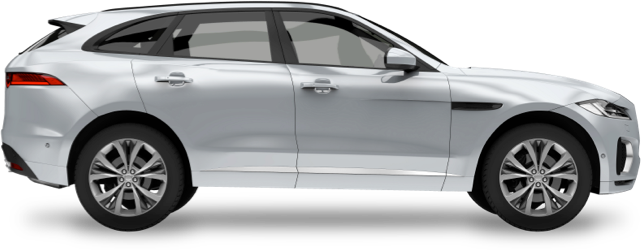- Over 1 million successful rentals
Car Hire France
Save time and money. We compare the offers of car rental companies in France on your behalf.
- Free cancellation Up to 48 hours prior to the scheduled pick up time
- Best price guarantee Have you found a better price? Let us know and we will make you a better offer.
- 24000+ pick-up locations Locations around the world
Compare Car Hire
Carrentals.co.uk offers simple and straightforward car hire comparison services. We don't add a penny to your quotes!
Car rental offers in France
Whether you're looking for a small rental car or a station wagon for the entire family, we will always have a suitable vehicle for the lowest price. Below are some examples from our selection in France.

-
RentScape From£ 10 /day -
Budget From£ 12 /day -
Keddy By Europcar From£ 12 /day

-
RentScape From£ 10 /day -
Dollar Rent a Car From£ 20 /day

-
Budget From£ 13 /day -
Hertz From£ 13 /day -
Europcar From£ 15 /day

-
Keddy By Europcar From£ 14 /day -
OK Mobility From£ 14 /day -
Goldcar From£ 15 /day

-
Keddy By Europcar From£ 15 /day -
Goldcar Key'n Go From£ 22 /day

-
OK Mobility From£ 15 /day -
Alamo From£ 25 /day -
Enterprise From£ 30 /day

-
Goldcar From£ 15 /day -
Budget From£ 19 /day -
Avis From£ 21 /day

-
Europcar From£ 20 /day -
Goldcar Key'n Go From£ 22 /day -
Enterprise From£ 23 /day

-
Keddy By Europcar From£ 15 /day -
Europcar From£ 22 /day -
Goldcar Key'n Go From£ 40 /day

-
Keddy By Europcar From£ 11 /day -
Europcar From£ 16 /day -
Hertz From£ 20 /day

-
Europcar From£ 12 /day -
RentScape From£ 13 /day -
Keddy By Europcar From£ 14 /day

-
Europcar From£ 13 /day -
Hertz From£ 22 /day -
Goldcar Key'n Go From£ 23 /day

-
Europcar From£ 12 /day -
RentScape From£ 13 /day -
Goldcar From£ 16 /day

-
RentScape From£ 13 /day -
Goldcar From£ 17 /day -
Flizzr From£ 17 /day

-
Keddy By Europcar From£ 13 /day -
Goldcar From£ 24 /day -
Avis From£ 25 /day

-
Europcar From£ 17 /day -
Keddy By Europcar From£ 21 /day -
Goldcar Key'n Go From£ 22 /day

-
Keddy By Europcar From£ 15 /day -
Europcar From£ 21 /day -
Dollar Rent a Car From£ 25 /day

-
Keddy By Europcar From£ 15 /day -
Europcar From£ 15 /day -
Hertz From£ 20 /day

-
Keddy By Europcar From£ 13 /day -
Goldcar From£ 16 /day -
Europcar From£ 16 /day

-
Keddy By Europcar From£ 13 /day -
Europcar From£ 19 /day -
Goldcar From£ 26 /day

-
Dollar Rent a Car From£ 13 /day -
Hertz From£ 15 /day -
Thrifty From£ 16 /day

-
Hertz From£ 15 /day -
OK Mobility From£ 19 /day -
Thrifty From£ 20 /day

-
Budget From£ 15 /day

-
Budget From£ 15 /day

-
Europcar From£ 17 /day -
Keddy By Europcar From£ 22 /day -
Hertz From£ 31 /day

-
Keddy By Europcar From£ 16 /day -
OK Mobility From£ 17 /day -
Europcar From£ 17 /day

-
Europcar From£ 16 /day -
Keddy By Europcar From£ 18 /day -
Thrifty From£ 26 /day

-
Keddy By Europcar From£ 19 /day -
Europcar From£ 24 /day -
Sixt From£ 30 /day

-
Keddy By Europcar From£ 20 /day -
RentScape From£ 23 /day -
Europcar From£ 23 /day

-
Europcar From£ 23 /day -
Keddy By Europcar From£ 25 /day -
Budget From£ 29 /day

-
Thrifty From£ 20 /day -
RentScape From£ 24 /day -
Sixt From£ 34 /day

-
Goldcar From£ 20 /day

-
Enterprise From£ 23 /day -
Alamo From£ 39 /day -
Sixt From£ 47 /day

-
Keddy By Europcar From£ 21 /day -
Europcar From£ 28 /day

-
Keddy By Europcar From£ 22 /day -
Europcar From£ 23 /day -
Alamo From£ 28 /day

-
Europcar From£ 24 /day -
Sixt From£ 54 /day

-
Flizzr From£ 23 /day

-
Alamo From£ 24 /day -
Enterprise From£ 29 /day -
Avis From£ 40 /day

-
Alamo From£ 25 /day -
Europcar From£ 28 /day -
Enterprise From£ 29 /day

-
Alamo From£ 25 /day -
Enterprise From£ 29 /day -
RentScape From£ 29 /day

-
Avis From£ 29 /day

-
Avis From£ 25 /day -
Europcar From£ 32 /day -
Sixt From£ 33 /day

-
Alamo From£ 26 /day -
Enterprise From£ 29 /day -
National Car Rental From£ 36 /day

-
Enterprise From£ 30 /day -
Alamo From£ 41 /day -
Budget From£ 46 /day

-
Alamo From£ 26 /day -
Enterprise From£ 29 /day -
Budget From£ 33 /day

-
Avis From£ 26 /day -
Alamo From£ 57 /day -
Enterprise From£ 61 /day

-
Avis From£ 26 /day -
Europcar From£ 42 /day -
Budget From£ 45 /day

-
Sixt From£ 43 /day

-
Europcar From£ 31 /day

-
RentScape From£ 32 /day -
Sixt From£ 51 /day

-
Dollar Rent a Car From£ 45 /day -
Thrifty From£ 49 /day -
Hertz From£ 53 /day

-
RentScape From£ 32 /day -
Sixt From£ 37 /day -
Dollar Rent a Car From£ 44 /day

-
RentScape From£ 32 /day

-
Europcar From£ 45 /day -
Avis From£ 69 /day -
Thrifty From£ 74 /day

-
Hertz From£ 30 /day -
Europcar From£ 37 /day -
Flizzr From£ 57 /day

-
Avis From£ 30 /day

-
Budget From£ 34 /day

-
Avis From£ 30 /day -
Budget From£ 37 /day -
Sixt From£ 47 /day

-
Avis From£ 30 /day -
Budget From£ 34 /day -
Europcar From£ 37 /day

-
Avis From£ 35 /day

-
RentScape From£ 32 /day -
Enterprise From£ 38 /day -
ADA From£ 38 /day

-
RentScape From£ 32 /day -
Avis From£ 37 /day -
Thrifty From£ 51 /day

-
Budget From£ 35 /day -
Avis From£ 37 /day -
Sixt From£ 54 /day

-
Dollar Rent a Car From£ 13 /day -
Hertz From£ 15 /day -
Thrifty From£ 16 /day

-
RentScape From£ 21 /day -
Thrifty From£ 24 /day -
Dollar Rent a Car From£ 24 /day

-
Hertz From£ 28 /day -
Sixt From£ 33 /day -
Goldcar Key'n Go From£ 35 /day

-
RentScape From£ 22 /day -
Europcar From£ 43 /day

-
Keddy By Europcar From£ 25 /day -
Europcar From£ 25 /day -
National Car Rental From£ 40 /day

-
Hertz From£ 29 /day -
Dollar Rent a Car From£ 30 /day -
Thrifty From£ 32 /day

-
Thrifty From£ 26 /day -
Hertz From£ 26 /day -
Europcar From£ 33 /day

-
Dollar Rent a Car From£ 28 /day -
Thrifty From£ 39 /day

-
Europcar From£ 30 /day -
Keddy By Europcar From£ 36 /day -
Sixt From£ 110 /day

-
Avis From£ 25 /day -
Europcar From£ 32 /day -
Sixt From£ 33 /day

-
Alamo From£ 26 /day -
Enterprise From£ 29 /day -
National Car Rental From£ 36 /day

-
Enterprise From£ 31 /day

-
Europcar From£ 32 /day -
Budget From£ 65 /day -
Thrifty From£ 67 /day

-
Europcar From£ 32 /day -
Budget From£ 66 /day -
Sixt From£ 74 /day

-
Europcar From£ 32 /day -
Enterprise From£ 44 /day -
Avis From£ 53 /day

-
Budget From£ 43 /day -
Europcar From£ 47 /day -
Keddy By Europcar From£ 49 /day

-
RentScape From£ 43 /day -
Sixt From£ 72 /day -
Avis From£ 80 /day

-
Budget From£ 44 /day -
Europcar From£ 55 /day

-
RentScape From£ 22 /day -
Thrifty From£ 25 /day -
Hertz From£ 25 /day

-
Thrifty From£ 25 /day -
Sixt From£ 41 /day

-
Europcar From£ 40 /day

-
RentScape From£ 28 /day

-
RentScape From£ 29 /day

-
Sixt From£ 42 /day

-
RentScape From£ 31 /day

-
Sixt From£ 33 /day -
Hertz From£ 33 /day -
Alamo From£ 140 /day

-
Sixt From£ 44 /day -
Hertz From£ 53 /day

-
Goldcar From£ 16 /day -
Sixt From£ 26 /day -
Flizzr From£ 33 /day

-
OK Mobility From£ 17 /day -
Europcar From£ 35 /day

-
Enterprise From£ 19 /day -
Alamo From£ 36 /day

-
OK Mobility From£ 17 /day -
Sixt From£ 23 /day -
Flizzr From£ 24 /day

-
Goldcar From£ 17 /day -
Hertz From£ 30 /day

-
Goldcar Key'n Go From£ 23 /day -
Goldcar From£ 29 /day

-
Goldcar From£ 18 /day -
Lutam From£ 31 /day -
Rent a car From£ 40 /day

-
Enterprise From£ 19 /day -
Alamo From£ 23 /day -
National Car Rental From£ 24 /day

-
Alamo From£ 25 /day -
Enterprise From£ 29 /day

-
Keddy By Europcar From£ 11 /day -
Europcar From£ 19 /day

-
Budget From£ 12 /day -
Keddy By Europcar From£ 12 /day -
Hertz From£ 13 /day

-
Budget From£ 13 /day -
Europcar From£ 15 /day -
Avis From£ 25 /day

-
Europcar From£ 12 /day -
Keddy By Europcar From£ 14 /day -
Hertz From£ 20 /day

-
Europcar From£ 13 /day -
Hertz From£ 22 /day -
Enterprise From£ 25 /day

-
Keddy By Europcar From£ 15 /day -
Europcar From£ 15 /day -
Hertz From£ 20 /day

-
Enterprise From£ 19 /day -
Alamo From£ 36 /day

-
Keddy By Europcar From£ 16 /day -
Europcar From£ 17 /day -
Budget From£ 23 /day

-
Europcar From£ 16 /day
Popular cities in France
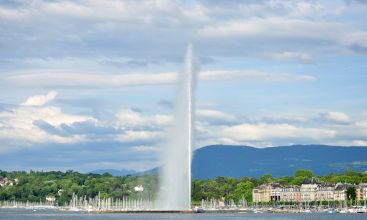
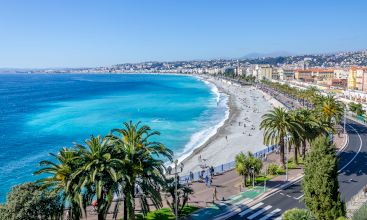

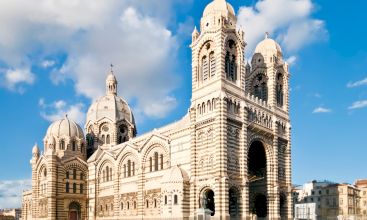
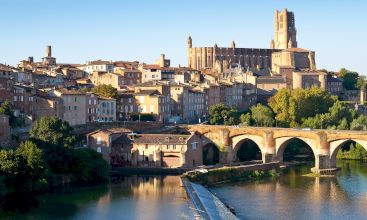
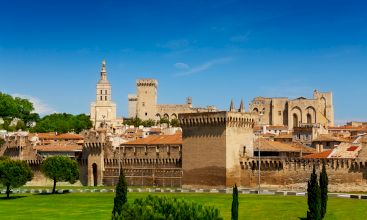
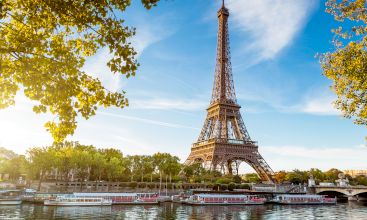
Popular rental locations in France
-
Car Hire Nice AirportFrom
£ 16 /day -
Car Hire Geneva Airport (Switzerland)From
£ 24 /day -
Car Hire Bordeaux AirportFrom
£ 12 /day -
Car Hire Geneva Airport (France)From
£ 16 /day -
Car Hire Toulouse AirportFrom
£ 16 /day -
Car Hire Marseille AirportFrom
£ 16 /day -
Car Hire Avignon TGV StationFrom
£ 18 /day -
Car Hire Lyon Saint Exupery AirportFrom
£ 10 /day

When to book a rental car in France
France - When is the most affordable time to rent a mini class car?
At this destination (France), January is the most affordable time to rent a mini class car with an average daily rate of
France - When is the most affordable time to rent a economy class car?
At this destination (France), March is the most affordable time to rent a economy class car with an average daily rate of
France - When is the most affordable time to rent a compact class car?
At this destination (France), March is the most affordable time to rent a compact class car with an average daily rate of
France - When is the most affordable time to rent an intermediate class car?
At this destination (France), March is the most affordable time to rent a intermediate class car with an average daily rate of
France - When is the most affordable time to rent a standard class car?
At this destination (France), March is the most affordable time to rent a standard class car with an average daily rate of
France - When is the most affordable time to rent a full-size car?
At this destination (France), November is the most affordable time to rent a full-size class car with an average daily rate of
France - When is the most affordable time to rent a luxury car?
At this destination (France), November is the most affordable time to rent a luxury class car with an average daily rate of
France - When is the most affordable time to rent a station wagon?
At this destination (France), November is the most affordable time to rent a station wagon with an average daily rate of
France - When is the most affordable time to rent a SUV?
At this destination (France), March is the most affordable time to rent an SUV with an average daily rate of
France - When is the most affordable time to rent a MPV?
At this destination (France), November is the most affordable time to rent an mpv with an average daily rate of
France - When is the most affordable time to rent a minivan?
At this destination (France), November is the most affordable time to rent a minibus with an average daily rate of
France - When is the most affordable time to rent a sports car?
At this destination (France), June is the most affordable time to rent a sports car with an average daily rate of
France - When is the most affordable time to rent a convertible?
At this destination (France), February is the most affordable time to rent a convertible with an average daily rate of
France - When is the most affordable time to rent a sedan?
At this destination (France), April is the most affordable time to rent a sedan with an average daily rate of
France - When is the most affordable time to rent a delivery van?
At this destination (France), December is the most affordable time to rent a van with an average daily rate of
Car rental locations in France
Carrentals.co.uk compares rental car prices at the following destinations
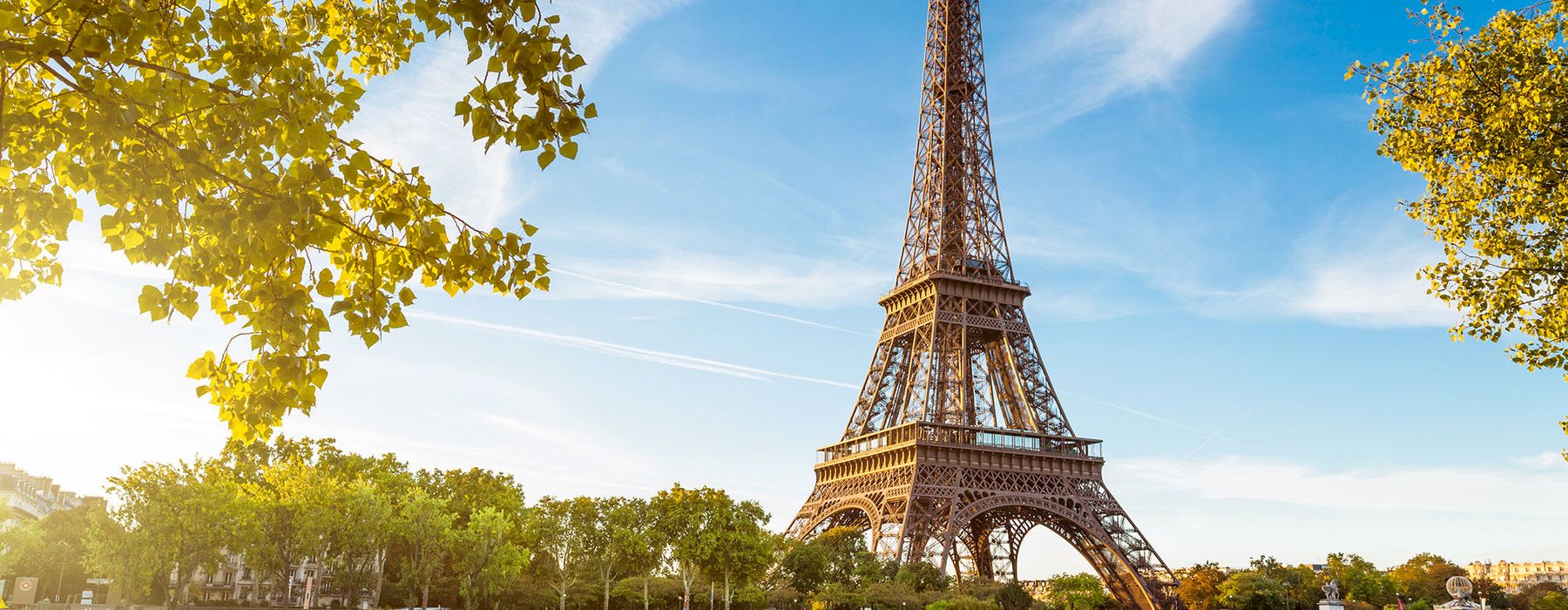
France Guide
France is best explored by rental car. Carrentals.co.uk has over 710 pick-up locations in France. This means there is always a pick-up location close to your destination.
Most popular car hire locations in France
Driving
The romantic appeal of France along with stunning beach resorts and miles of rugged coastline make this country a popular holiday destination. For short stays, Paris has no end of attractions, while further historical treasures and outstanding scenery are only a short drive away. The country offers something for all holidaymakers. There’s the option of hiking in the Alps, sampling the best wine or simply reclining on one of the many idyllic Mediterranean or Atlantic beaches.
Driving Tips for France
Although the high-speed railway network is well renowned, much of France’s appeal lies in the winding roads that cross the rugged countryside. On the whole, car rental is significantly cheaper than taking trains, as rental prices are reasonable. Roads are well maintained and driving allows visitors to experience the true beauty of the country at their own pace.
Driving licences: EU licences which have been held for at least one year prior and are written in a Romanised alphabet are accepted. Drivers with licences from non-EU countries must obtain an International Driving Licence.
Which side does France drive on: the right.
Speed limits:
Highways and dual carriageways: 80mph (130kph)
National or provincial roads: 68mph (110kph)
Local roads: 49mph (80kph)
Urban roads: 31mph (50kph)
Alcohol limits: the limit is 0.05 per cent; slightly stricter than the UK limit of 0.08 per cent. Driving over the legal limit is a serious offence which can result in severe penalties.
Driving age: although the legal age to drive is 18, the minimum age to rent a vehicle is 20 years and drivers must have held their driving licence for a minimum of one year.
Seatbelts: all passengers, regardless of age, must wear a seatbelt. Passengers under the age of 10 are not permitted to sit in the front of the vehicle. Fines are issued to anyone caught ignoring these regulations.
Mobile phones and GPS: driving while using a mobile phone is prohibited, with fines for those caught flouting this law. Using GPS is legal and advisable as the signs in rural France are rare and difficult to follow.
Cost of fuel in France: similar to the UK, although it is occasionally cheaper.
Car hire and fuel payment: a credit card is required for car hire. The majority of petrol stations accept credit cards as many are self-service.
Insurance: car rental firms are required to include liability coverage with each rental by law. However, additional insurance is often only a little more in price and can come in handy for things like flat tyres, which are not covered by basic insurance.
Traffic and parking: parking laws in France are enforced and even in rural areas, finding parking can be difficult. Spaces are clearly indicated, and parking outside of regulated spaces can result in a fine or even the vehicle being towed. Traffic isn’t usually a problem outside of city centres; however, in places such as Paris it can add significant time to a journey.
Transport
Trains
The Eurostar connects London with Paris in just 2 hours, 15 minutes, while other high-speed routes enter from neighbouring countries such as Belgium and Spain. The TGV is the best option for covering long distances. Reservations are obligatory but the trains are significantly faster than other slower trains. However, the slow trains offer the chance to enjoy the scenery at a more relaxing pace. The French National Railway runs most services, with both second and first class travel available. Prices vary but a standard ticket from Paris to Toulouse costs between £100 and £150.
Taxis
Although taxis are not ideal for long journeys, they are an easy way of getting around the city centres. They can be hailed on the street, but it is more common to find them at designated taxi stations, which can be found across most cities and towns. Prices are charged per kilometre according to a meter. A standard fare from Charles de Gaulle Airport to the centre of Paris is around £40.
Buses
Bus isn’t a popular way to enter France although international services exist. Although there are a number of intercity buses, travelling by bus is fairly uncommon and as a result, service is limited. Eurolines is the single operator, linking a number of cities across the country, while intercity bus services run within each region. Local services are cheap, at around £1 for a standard single fare.
Ferries
While ferries are not commonly used for domestic travel within France, they are a popular way to reach the country from the UK. P&O Ferries, Brittany Ferries and SeaFrance are among the main providers, with routes between Dover and Calais and Portsmouth and Caen among the most popular. Return tickets are available for under £50.
Airports
The domestic airline network in France is extensive, with Paris Charles de Gaulle the main entry point. With so many carriers providing services, competition is fierce so there are some great deals to be found by those who shop around. Air France, CCM and Twin Jet are the most popular services. EasyJet also offers a number of services between cities such as Marseille, Nice and Lyon, with a flight from Paris to Nice typically costing between £100 and £120.
Explore
Exploring France
From the iconic Eiffel Tower to the stunning Arc de Triomphe and the famous Mona Lisa, Paris alone has enough to keep tourists entertained. However, driving out of the capital and across the country allows tourists to see the magnificent countryside and numerous historic sites and chateaux, particularly in the Loire Valley.
Each region in France has its own unique charm. Bordeaux is known for its wine and driving through the miles of vineyards and sampling the local produce are great ways to spend a few days here. Lyon has a historic old centre and a number of Roman ruins, while Strasbourg is an EU headquarters filled with German-influenced architecture. Northern France’s Normandy features many reminders of WWII.
Nantes in the south is home to a number of ancient monuments, while St Tropez is the best city to head for celebrity spotting, with its many great bars and clubs for night owls as well as its Mediterranean beaches. For hiking, the Pyrenees can’t be beat, while the Alps draw winter skiers.
Our Travel Editor’s Recommended Drives
French Alps – a visit to France isn’t complete without a trip to the French Alps. With over 450 miles of winding roads all boasting spectacular views, it’s a great place to explore by car. Journeys here can take anywhere between three to seven days, depending on the amount of stops and the weather.
Crest Road – one of France’s oldest mountain ranges, the Vosgues, is well known as the best hiking area in the country. It’s also an ideal spot to sample local cheeses in the town of Munster or enjoy a coffee in Col de la Schlucht.
Route des Grand Crus – Burgundy’s wine country boasts this scenic drive which winds past numerous famous wineries and vineyards. The 37-mile stretch is easy to cover in a day or two, with the obligatory stops to sample to local produce factored in.
Gorges of the Ardeche – this route runs along the Ardeche River, and with an astounding backdrop of the Rhone Valley, it’s not hard to see why it is such a popular drive. The route showcases much of France’s finest canyons and unusual rock formations.
Holidays and Festivals
New Year’s Day (1 January)
Easter (March/April)
Labour Day (1 May)
Christmas Day (25 December)
Weather
The size of France means that there is a wide variety of weather. The north tends to have a cool climate all year round; however, the Mediterranean coast sees scorching summers and mild winters. The mountainous regions have significantly colder winters than the rest of the country, making them ideal places to head for a ski vacation.
Practical Stuff
France Travel Tips
With its amazing scenery, France is all about the journey, not just the destination. Thanks to France’s proximity to England and the ease of travel via the Channel Tunnel, it’s one of the easiest countries to reach from the UK and has a wide range of travel facilities for visitors.
France contact numbers
Country code - (+33)
Traffic news/weather/road accident – +33 48 94 33 33
Emergency services – 112
Emergency police – 17 (from mobile)
Emergency medical services – 15 (from mobile)
Emergency fire – 18 (from mobile)
British Embassy – +33 1 44 51 31 00
Irish Embassy – +33 1 44 17 67 00
US Embassy – +33 1 43 12 22 22
French Embassy – +33 1 40 59 33 00
Canadian Embassy – +33 1 44 43 29 02
Money matters
The official currency of France is the euro. Exchange offices can be found across the country at banks, post offices, airports and bus and train stations. Although it is illegal to exchange money in shops or hotels, travellers’ cheques are accepted by these establishments. Banks are open Tuesday through Saturday, 10:00 to 17:00, but are usually closed between 13:00 and 15:00.
Health and safety
There are few health concerns for those visiting France aside from the common threat of hepatitis. Although the tap water is drinkable, it is best for visitors to stick with bottled water to avoid any foreign microbes. EU citizens can receive free or heavily discounted healthcare in cases of emergency. EU citizens should carry their European Health Insurance Card (EHIC) at all times.
Fitting in…
The French are well known art, fashion and culture devotees, and many expect visitors to value these subjects, even if their knowledge of them is somewhat limited. Smart dress is expected in most instances, and learning one or two French phrases goes down extremely well with the locals. The French are very patriotic so avoid saying anything that could be construed as insulting.
Visas for France
UK, EU and Schengen citizens can enter visa free for stays of any length. Canadian and American nationals are also able to enter visa-free, but for a maximum stay of three months. Citizens from other countries can check with their nearest French embassy for visa information.
Electricity
In France, the voltage is 220-240 at 50 Hertz. The plugs used feature two round pins so travellers from nations with different plugs are advised to pack a universal plug adapter.
Business hours
Shops: 09:00 to 12:00 and 14:00 to 18:00, Tuesday to Sunday
Government offices: 09:00 to 12:00 and 14:00 to 18:00, Monday to Friday
Banks: 09:00 to 12:00 and 14:00 to 18:00, Monday to Friday
Helpful phrases
Bonjour - Hello
Comment allez-vous? – How are you?
Au revoir – Goodbye
Combien? – How much?
Excusez-moi – Excuse me
Désolé – I’m sorry
Je ne comprends pas – I don’t understand
Très bien – Very well
Non merci – No thank you
Practical information
-
CurrencyEuro
-
Driving directionRight
-
City speed limit50 km/h
-
Freeway speed limit90 km/h
-
LanguageFrench
-
Popular car categoryEconomy
What most people want to know
The following questions and answers are a selection of the most popular questions. If you do not find the answer to your question, have a look at the Frequently Asked Questions page or contact us.
- Goldcar Key'n Go
- Europcar
- Rent a car
- Enterprise
- Thrifty
- Budget
- Alamo
- Avis
- Dollar Rent a Car
- National Car Rental
- Sixt
- Hertz
- Keddy By Europcar
- Flizzr
- Lutam
- Sicily by Car
- Goldcar
- FireFly Car Rental
- OK Mobility
- RentScape
- Rhodium Car Rental
- InterRent
- ADA
- RPS Luxe
- AbsoluteCar
- CITROEN
- ADA Corsica
- wheego
- liigu
- AVIS Car-Away
- Nextcar
- Elite (Luxury)
- Costa Rent
- Unirent Car Rental
- McRent
- Carwiz rent a car
- Your Rent
- Edel & Stark
- Apollo Car Rental
- Drivalia
- First Car
